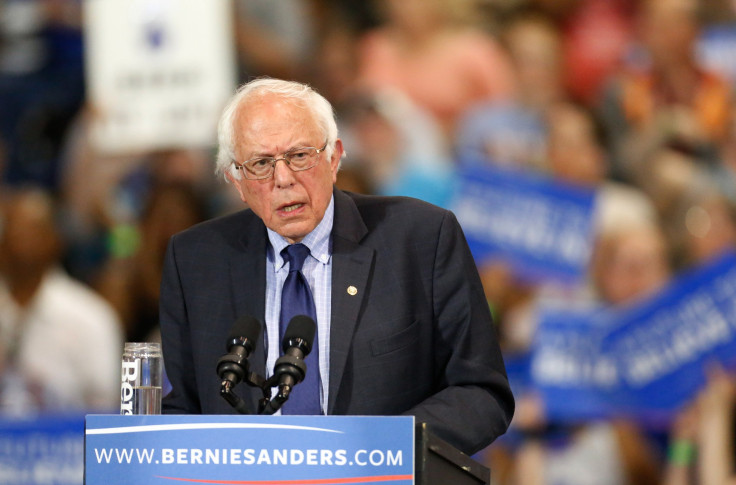Does Bernie Sanders Want To Be Hillary Clinton's Vice President? Unity Ticket Could Avoid Ugly Convention Battle

Is Bernie Sanders angling to become vice president? Up until now, he has adamantly denied that he is interested in being Hillary Clinton’s running mate, and earlier in the day, he floated his own possibilities for the second slot, should he become the Democratic Party’s presidential nominee. The message seemed clear: he is not interested in being Clinton's veep.
But after losing three out of four contests on Tuesday, Sanders issued a statement that seemed to suggest he may be interested in the job after all.
In the statement, Sanders first noted that he won in Rhode Island, “the one state with an open primary where independents had a say in the outcome.” Then he went further, saying: “Democrats should recognize that the ticket with the best chance of winning this November must attract support from independents as well as Democrats. I am proud of my campaign’s record in that regard.”
Sanders’ move to underscore his own appeal among independents in the context of “the ticket” could be a deliberate shift from a year ago when he discussed the issue with Yahoo News’ Katie Couric. During that interview, she asked Sanders if he would be interested in being Clinton’s vice president. He responded: “Would she be interested in being my vice president?” He then reiterated that he was running to win the presidency.
In recent weeks, Sanders campaign has said it is going to take its fight for the nomination all the way to the convention — where neither candidate is expected to have the necessary pledged delegate count to win on the first ballot. That could set up a divisive battle for so-called “super delegates” — elected officials and other party powerbrokers who get to independently vote on the nomination. Of late, Sanders' campaign has been citing polls that show him a stronger general election nominee to make the case that super delegates should consider supporting him at the convention. But if Clinton puts Sanders on the ticket, she might be able to circumvent a divisive convention battle in the name of a unity ticket.
Today, we are going to say loud and clear the billionaire class cannot have it all. Grab a friend and go vote! pic.twitter.com/4iR4uiEmM7
— Bernie Sanders (@BernieSanders) April 26, 2016
Sanders has consistently outperformed Clinton among independent voters — a crucial general election bloc — in states where those voters are permitted to vote in Democratic primaries.
“In New Hampshire, for instance, Sanders won Democrats by 4 percentage points while winning independents by nearly 50 percentage points, a split we’ve seen repeatedly since then,” Dan Hopkins, a University of Pennsylvania professor of government, wrote recently at the polling analysis website FiveThirtyEight. “Some of Sanders’s strongest performances in primaries have come in places such as New Hampshire, Michigan and Wisconsin, states whose rules allow independents to vote in either primary.”
Pundits have speculated that Clinton is looking for a running mate who can help her pick up key voting demographics, such as Labor Secretary Tom Perez, who is Latino, or U.S. Sen. Sherrod Brown, who represents the crucial swing state of Ohio.
© Copyright IBTimes 2024. All rights reserved.






















